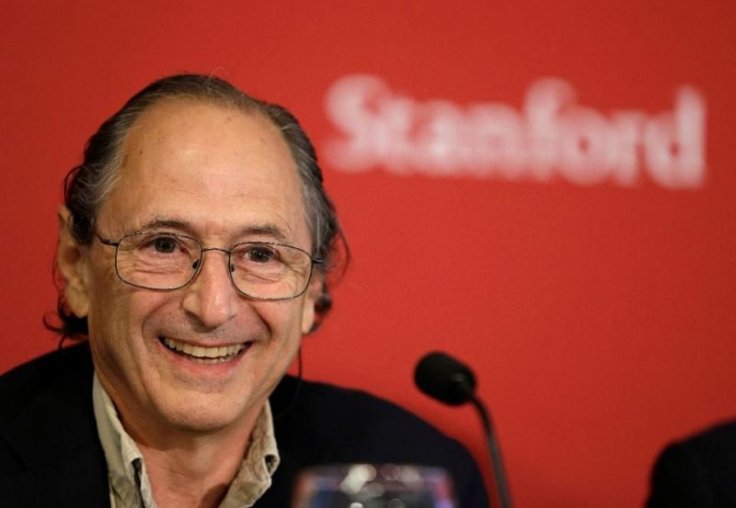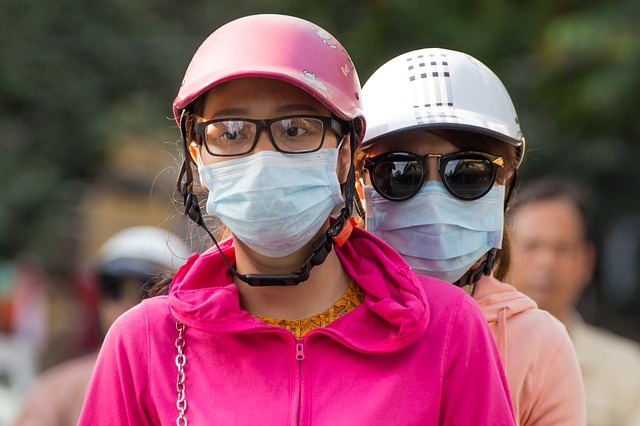Nobel laureate Michael Levitt, who is an American-British-Israeli biophysicist teaching structural biology at Stanford University, has predicted the outcome of America's outbreak similar to what he said about China. Now, after analyzing the global COVID-19 cases in January, he said China would get through the worst of its coronavirus outbreak long before health experts had predicted.
Levitt, who received the 2013 Nobel Prize in Chemistry for developing multi-scale models for models for complex chemical systems, foresees a similar outcome not only in the US but in rest of the world.
At a time when many epidemiologists are warning about dystopian outcomes like millions of deaths, what Levitt says comes as a shocker, that too being a biophysicist. He cites data which doesn't support such a dire scenario, especially where social distancing measures are taken, reported LA Times.
"What we need is to control the panic.. we're going to be fine,." he said.
On Jan. 31, China had 46 new deaths due to coronavirus, in comparison with 42 new deaths a day before. Noticing this, Levitt said, "This suggests that the rate of increase in number of the deaths will slow down even more over the next week."

Levitt's Logic
Although daily deaths increased, the rate of that increase declined. Like a car, although speeding up, did not accelerate as before. He wrote this in a report he shared with friends on February 1 which has gone viral on Chinese social media. Number of new cases reported each day began to fall and a week later, the mortality rate started to fall.
Levitt compared the situation to bank interest—if on the first day a person receives an interest rate of 30% on his or her savings, the next day it would be 29% and so forth. "You understand that eventually, you will not earn very much," he explained in the report. "Even if the interest rate keeps dropping, you still make money. The sum you invested does not lessen, it just grows more slowly," he added.
He tweeted an updated report on February 6.
New Predictions
Three weeks after this, Levitt told China Daily News that the rate of growth of virus had peaked. He predicted that the total number of confirmed coronavirus cases in China would end up around 80,000, with about 3,250 deaths. This came out to be true like a prophecy vindicated. On March 16, China had a total of 80,298 COVID-19 cases with 3,245 deaths.
China's population of nearly 1.4 billion, with roughly 10 million annual deaths. The number of newly diagnosed patients dropped to around 25 a day, with no cases of community spread reported since Wednesday, March 17.
He analyzed 78 countries with more than 50 reported cases of COVID-19 every day and sees "signs of recovery." He looked at only the number of new coronavirus cases every day and the percentage growth in that number from one day to the next.
"Numbers are still noisy but there are clear signs of slowed growth," he said. However this wouldn't mean that the end of the COVID-19 pandemic is near.
Reason for this?
He further explained: "In exponential growth models, you assume that new people can be infected every day, because you keep meeting new people. But, if you consider your own social circle, you basically meet the same people every day. You can meet new people on public transportation, for example; but even on the bus, after some time most passengers will either be infected or immune.

Many are Immune
In the case of Wuhan, where the virus originated, the city had the highest number of COVID-19 cases, and everyone had a chance of getting infected, but only 3% caught it, he said. Even in the case of the virus-affected cruise ship Diamond Princess, the infection rate did not top 20%. Based on these cases, Levitt said many people are just naturally immune to the virus. However, he said social-distancing is critical, particularly the ban on large gatherings. "This is not the time to go out drinking with your buddies," he said.
Worried too!
Worried about the US, earlier this month, he told that if isolation didn't happen on time, it could lead to a situation where huge number of infected people would descend on the nearest hospital simultaneously leading to the collapse of the healthcare system. He said this at a time when US had less than 2,000 cases of COVID-19. Now the country has more than 35,200 cases.
Speaking about the rest of the world he said: "It will end when all those who are sick will only meet people they have already infected. The goal is not to reach the situation the cruise ship experienced."
He also blamed media for causing unnecessary panic which focuses on the increasing trend of infections and spotlighting infected celebrities, the virus can grow exponentially, he said, only when undetected, unreported and none is acting to control it, Levitt said.
"People need to be considered heroes for announcing they have this virus," he said. Simply put he reiterated that it's "not the end of the world."









